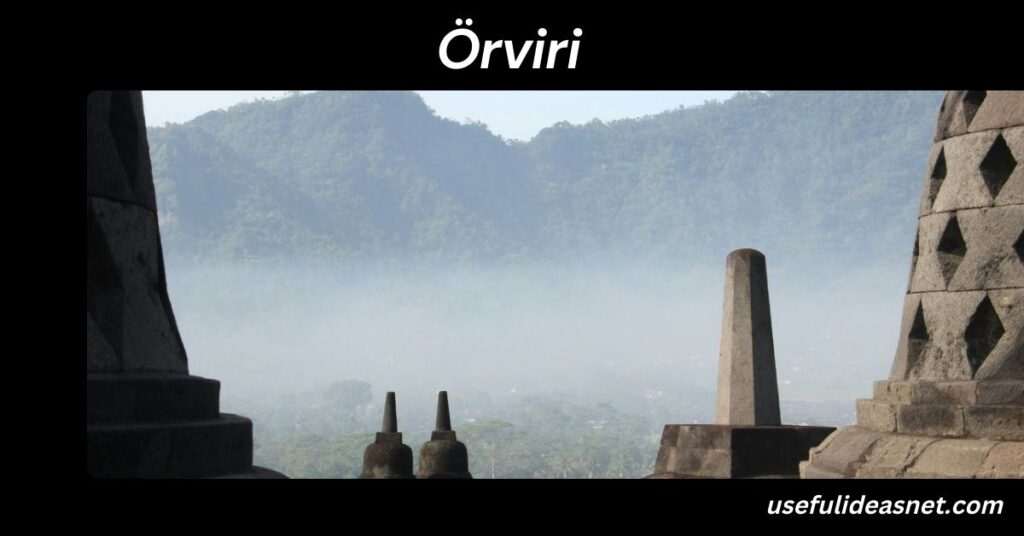The term “örviri” may sound unfamiliar to most, but its deep roots trace back to ancient Nordic culture, particularly from Iceland. Often intertwined with mythological traditions and deep spiritual beliefs, örviri is more than just a word—it’s a key to understanding the mindset of the ancient Norse and their relationship with nature, spirituality, and the unseen forces that governed their world. In this article, we will explore the meaning, significance, and modern-day relevance of örviri, uncovering its layers and connecting it to the broader scope of ancient Nordic traditions.
What is Örviri?
Örviri, at its core, refers to a type of ancient spiritual practice that was integral to the Norse way of life. It is believed to involve the communication and interaction with nature and the spirits residing within it. The word itself has evolved over centuries, yet it still retains a mystical quality that connects the past with the present. Örviri encapsulates the Norse belief that the world was full of hidden forces—be it in the form of gods, spirits, or energies—that could be harnessed for various purposes.

In many ways, örviri can be seen as a spiritual practice that aligned itself with nature, often manifesting in forms of ritual, poetry, and incantations. It involves invoking energies to bring about protection, prosperity, or balance in one’s life. Whether through the shaping of runes, the casting of spells, or the meditative practices employed by the Norse people, örviri was more than just a belief system—it was a way of life.
The Ancient Nordic Context: Origins of Örviri
To truly understand örviri, it’s essential to explore the context from which it emerged. Ancient Norse culture was deeply rooted in mythology, spirituality, and a connection to the land. The Vikings, who are often associated with this culture, believed that everything in the world had a spirit—whether human, animal, plant, or even inanimate objects like stones and rivers. These spiritual elements were not only seen as integral parts of daily life, but they were also seen as influencing the forces of nature and human fate.
Also Read: www .defstartuporg:A Comprehensive Guide to
The practice of örviri likely arose from these beliefs. It served as a conduit to channel the unseen forces of the world, allowing individuals to tap into spiritual energies for guidance, healing, or strength. It is said that practitioners of örviri could invoke these energies for practical purposes, such as ensuring a good harvest, winning battles, or finding protection from malicious forces.
Modern-Day Interest in Örviri: Relevance in Contemporary Culture
While örviri may have originated thousands of years ago, its influence is still felt today. In modern times, there has been a renewed interest in Norse mythology, spirituality, and traditions. As people become more drawn to ancient wisdom and alternative belief systems, örviri has gained a following among those who seek a deeper connection to nature and the energies that surround them.
In contemporary society, örviri is often linked with the modern-day practices of Neo-Paganism, specifically within the context of Heathenry or Ásatrú. These spiritual paths draw heavily on Norse traditions and seek to revive and reinterpret practices such as örviri, bringing them into the 21st century. Today, many individuals practice örviri not only as a spiritual discipline but also as a way to honor the wisdom of their ancestors, re-establish their relationship with nature, and gain insight into the forces that govern their lives.
How Örviri Is Practiced Today
While the exact methods of practicing örviri may have changed over time, several key elements remain consistent. Practitioners of örviri in modern times often engage in the following practices:
- Rune Casting: Runes have long been a symbol of Norse spirituality, and casting runes is a significant part of örviri. By casting runes or using them in rituals, practitioners attempt to tap into the energies of the ancient gods and the land itself. The runes are thought to have a mystical power that can unlock hidden knowledge and insight.
- Spiritual Healing: Just as the Norse people believed that spiritual forces governed health and well-being, modern practitioners of örviri continue to use spiritual practices to heal themselves and others. This may involve meditation, prayer, or the use of sacred herbs and objects to invoke protection or healing energy.
- Nature Rituals: Nature is at the heart of örviri, and many modern practitioners of the tradition conduct rituals in natural settings. This can include honoring the elements, performing offerings, or simply spending time in nature to connect with the spiritual forces that inhabit it.
- Invocations and Incantations: Much like the ancient Norse, today’s practitioners of örviri may invoke gods, spirits, or natural forces through the recitation of incantations or the performance of sacred rites. These invocations serve to establish a connection between the practitioner and the spiritual realm.
Also Read: Mifroom: The Future of Virtual Spaces and Online Interaction
The Role of Örviri in Norse Beliefs
In ancient Norse culture, spirituality was not an isolated aspect of life—it was woven into the fabric of daily existence. Örviri was one of many practices that helped maintain this connection between the human world and the divine. The gods, spirits, and forces of nature were seen as active participants in human affairs, and örviri served as a means to communicate and influence these forces.
For example, the Norse god Odin, associated with wisdom, war, and magic, was believed to be a key figure in the practice of örviri. His association with knowledge and the runic alphabet made him a central figure in the spiritual and magical practices of the Norse people. Similarly, the spirits of ancestors and nature spirits were invoked for various purposes, including protection and guidance.
Örviri and the Power of Language
Language held significant power in ancient Norse culture, and örviri was closely tied to the art of words. The recitation of poems and incantations was believed to hold magical properties. In particular, skaldic poetry—an essential form of Norse literature—was often used in rituals to summon spirits or invoke divine favor. This poetic tradition was deeply intertwined with the practice of örviri, as the power of words was thought to be an essential tool for accessing spiritual forces.
Also Read: Sankkucomplex: A Comprehensive Understanding of Its Psychological and Social Dynamics
FAQs on Örviri
What does örviri mean?
Örviri is an ancient Nordic term referring to spiritual practices that involve invoking natural and spiritual forces for guidance, protection, or empowerment. It is closely associated with Norse mythology and spirituality.
How is örviri practiced today?
Modern practices of örviri include rune casting, spiritual healing, nature rituals, and invocations of gods and spirits. Practitioners often aim to reconnect with nature and harness the energies of the natural world for personal growth and protection.
What role did örviri play in Norse culture?
In Norse culture, örviri was an integral part of daily life, helping people connect with the gods, spirits, and natural forces. It was used for various purposes, including gaining wisdom, healing, and ensuring protection from harmful energies.
Is örviri related to modern-day Neo-Paganism?
Yes, örviri is closely linked to modern-day Neo-Pagan practices, particularly within Heathenry and Ásatrú. These spiritual paths seek to revive ancient Norse traditions, including the practice of örviri, in contemporary society.
Can anyone practice örviri today?
Yes, anyone with an interest in Norse spirituality and traditions can practice örviri. It involves connecting with nature, learning about ancient practices like rune casting, and embracing the spiritual energies of the world.
Conclusion
Örviri is more than just an ancient practice; it’s a living tradition that continues to inspire and guide modern-day seekers. By exploring the history, significance, and modern relevance of örviri, we gain a deeper understanding of the ancient Nordic worldview and its connection to the natural and spiritual realms. Whether through runes, rituals, or the power of words, örviri invites us to reconnect with the forces that shape our lives and the world around us. For those seeking to deepen their connection with nature and the unseen, örviri offers a pathway to spiritual insight and empowerment.
